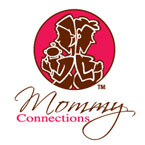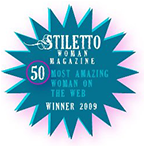Top parenting stories this week
BPA, Phthalates, Cold Medicine–Is your Child at Risk?
Whether you're worried about baby bottles or baby lotion, here's your guide to new research on potential infant health hazards.
by: Sydney Loney
In This Article
BPA, Phthalates, Cold Medicine
- A recent study found infants may be exposed to phthalates in baby shampoo, lotion and powder.
- Manufacturers aren't required to list phthalates on labels, so look for products labeled "phthalate-free."
- Studies show over-the-counter cough and cold medications are ineffective and unsafe for children under age six.
- Treat colds with rest, fluids, humidifiers and saline drops.
- Research is ongoing, but if you're concerned about bisphenol A (BPA) in plastic baby bottles, opt for glass bottles or those labeled "BPA-free."
T
hese are tough times for kids under two. Some of their coolest toys have been taken away, they have to be extra careful about what they put in their mouths and now they've been told they shouldn't indulge in many baby bath products. What's a kid (or parent) to do?It's easy to feel overwhelmed by all the recent warnings, research and recalls. To help put things in perspective, we've decoded some of the latest information with the help of pediatrician and author Dr. Jennifer Shu. Here's what you need to know about:
1. Phthalates in baby products
What studies say:
- a recent study published in Pediatrics found infants may be exposed to phthalates in baby lotion, shampoo and powder
- phthalates stabilize fragrances and make plastics flexible–they're found in everything from cosmetics to toys
- animal studies suggest phthalates can cause reproductive birth defects
- researchers measured phthalates in babies' urine–the highest levels were linked to infants who had been recently shampooed, powdered or lotioned and were most prevalent in infants under eight months
What to keep in mind:
The study offered no direct evidence that the products used on infants contained phthalates or that the chemicals in the babies' urine caused any harm. "It's hard to know how concerned parents need to be at this point," says Shu. "More research needs to be done before the full effects of phthalates (at levels typically found in a child's environment) are known. However, it's a good idea to avoid unnecessary exposure to chemicals whenever possible."
What you can do:
Look for products labeled "phthalate-free," or check labels for common phthalates, such as DEP and DEHP. As these chemicals often don't appear on labels, avoiding products containing fragrance may help. "In the meantime, the American Academy of Pediatrics has asked that manufacturers keep phthalates out of anything that might go in a baby's mouth, such as bottle nipples, teethers and pacifiers," says Shu. You can also look for organic baby bath products that don't contain artificial fragrances, food-grade preservatives or harsh chemicals.





